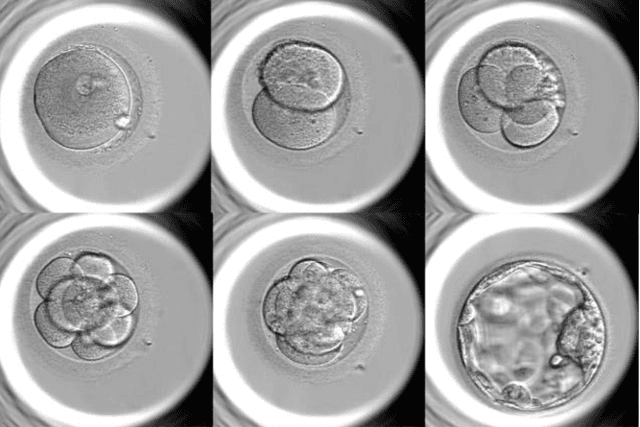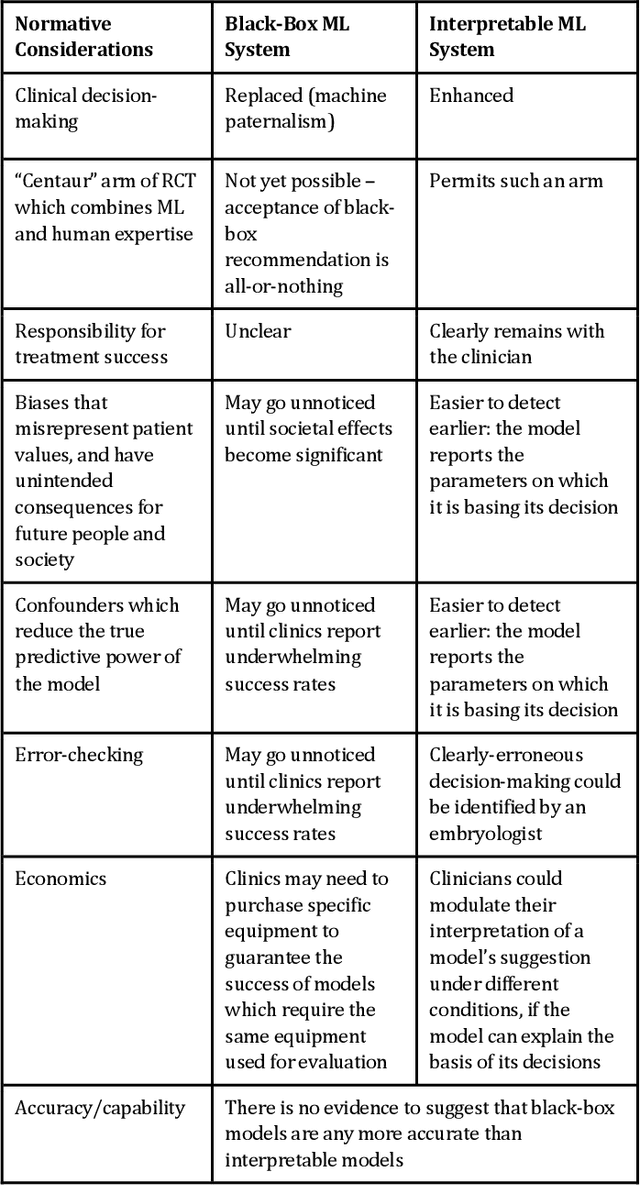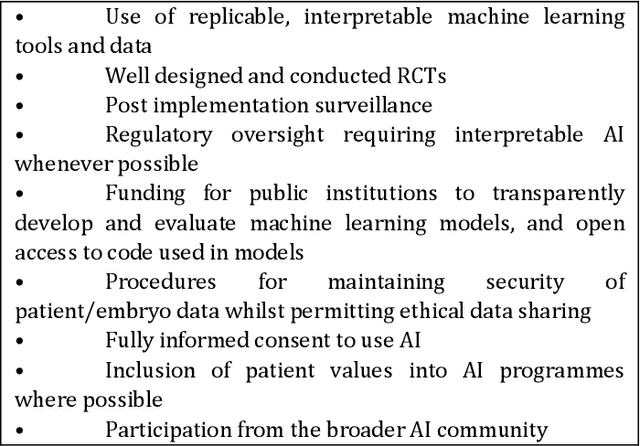Ethical Implementation of Artificial Intelligence to Select Embryos in In Vitro Fertilization
Paper and Code
Apr 30, 2021


AI has the potential to revolutionize many areas of healthcare. Radiology, dermatology, and ophthalmology are some of the areas most likely to be impacted in the near future, and they have received significant attention from the broader research community. But AI techniques are now also starting to be used in in vitro fertilization (IVF), in particular for selecting which embryos to transfer to the woman. The contribution of AI to IVF is potentially significant, but must be done carefully and transparently, as the ethical issues are significant, in part because this field involves creating new people. We first give a brief introduction to IVF and review the use of AI for embryo selection. We discuss concerns with the interpretation of the reported results from scientific and practical perspectives. We then consider the broader ethical issues involved. We discuss in detail the problems that result from the use of black-box methods in this context and advocate strongly for the use of interpretable models. Importantly, there have been no published trials of clinical effectiveness, a problem in both the AI and IVF communities, and we therefore argue that clinical implementation at this point would be premature. Finally, we discuss ways for the broader AI community to become involved to ensure scientifically sound and ethically responsible development of AI in IVF.
 Add to Chrome
Add to Chrome Add to Firefox
Add to Firefox Add to Edge
Add to Edge